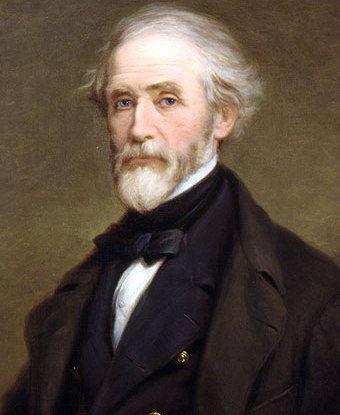Last updated: June 21, 2016
Person
Dennis Mahan

Dennis Hart Mahan was born in New York City on April 2, 1802. He grew up in Norfolk, Virginia, and was appointed from that state to attend the United States Military Academy at West Point. As an undergraduate at West Point, Mahan taught mathematics to underclassmen. Graduating at the top of his class in 1824, he soon returned to the Academy to teach civil and military engineering from 1824 to 1871. He was a noted American military author. He is also the father of accomplished naval historian and theorist Rear Admiral Alfred Thayer Mahan.
From 1826 to 1830, the War Department sent him to Europe to study public engineering works and military institutions. On his return to West Point Mahan continued to teach. He taught the course on military science taken by virtually every West Pointer who fought in the Civil War. He was also a recognized authority on military engineering and wrote several books that were considered standards in his field. Some of his works include: Complete Treatise on Field Fortification (1836), Summary on the Cause of Permanent Fortifications and of the Attack and Defense of Permanent Works (1850), and An Elementary Course of Military Engineering (2 vol., 1866–67). Despite its odd title, his textbook, Elementary Treatise on Advance-Guard, Out-Post, and Detachment Service of Troops (1847, often reprinted), was America’s first comprehensive work on tactics and strategy.
Professor Mahan was married to Mary Helena Okill and they raised five children. Their oldest son, Alfred Thayer, chose the U.S. Naval Academy and became a renowned naval strategist and historian. A younger son, Frederick August, graduated from West Point in 1867.
Shortly after the academy's board recommended his retirement in 1871, Mahan took his own life. He died near Stoney Point, New York, from suicide during an insanity attack that resulted from his inability to deal with his forced retirement.
Fort Mahan, located at Benning Road and 42nd Street, NE, Washington D.C., was named after Professor Mahan. Over time, Mahan became a highly respected and influential figure at the Academy through his work to shape the school's curriculum. Most Civil War commanders, both Union and Confederate, learned about fortifications and strategy from Mahan's lectures and writing.
